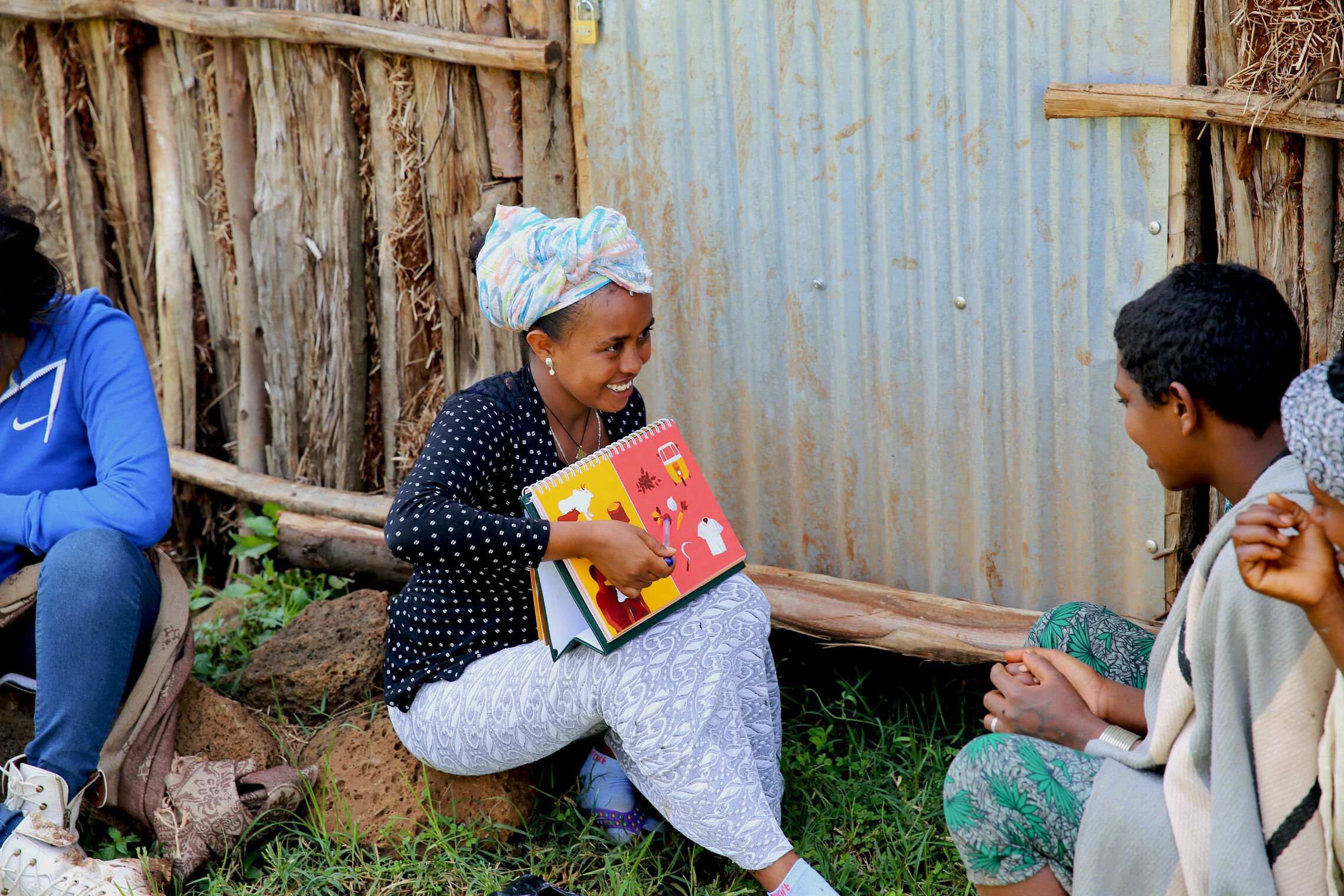Smart Start
design research | service design | branding
2016, Ethiopia
The Adolescents 360 Program kicked off in 2016, aiming to increase the adoption of modern contraceptives and reduce unintended pregnancies among adolescent girls in Nigeria, Ethiopia, and Tanzania. I led visual design and prototyping in the Ethiopian context on this year-long project.
Our team for this program consisted of IDEO.org (a design consultancy leading the innovation process), Population Services International (a global NGO dedicated to healthcare access), and Ethiopia's Ministry of Health. Together we set out to create a service for accessing contraception that solved the challenges of both demand and access.
In rural Ethiopia, child marriage is still common, despite local laws forbidding it. Girls face a two-hour walk to the nearest health post, and often don’t meet health workers until their first child’s immunizations post-birth. Contraception was called “family planning,” and it was seen as something to be considered only after a girl had secured her marriage by birthing a child, but even then fears of infertility and stigma around promiscuity made contraception uptake very low.
We designed Smart Start, a counseling curriculum delivered by Health Extension Workers, that links financial health to family planning. The service design begins with health workers engaging community elders and leaders to gain their support for promoting contraception among young couples. These local leaders are then enlisted to notify health workers whenever a new couple marries. A health worker then goes to the house of the newlyweds to counsel them together with direct messaging aimed at their immediate needs. The service bypasses the accessibility problem by bringing contraception access directly to girls in their home while also lowering the social stigma so they feel supported by both their community and their husband.
For this project, I was a key member of the innovation team leading prototyping, messaging, and comprehension. We tested many approaches to see what felt relevant and easy to understand, and ultimately the output I designed was a highly visual counseling book for health workers that was low literacy friendly and easy to carry as they make their home visits.
A key consideration for design was the visualization of money and financial planning. Rural Ethiopia has a trade based economy and every young person grasps the value of a bag of teff, a staple grain. They also identify with the dream to own livestock and eventually build their own home. I translated this understanding into a visual system, illustrating trade-offs like having children right after marriage versus waiting until they have some savings. This way of framing the topic of contraception visually, through the lens of their own dreams, made the previously uncomfortable and taboo conversation accessible across diverse regions, languages, and literacy levels.
The Smart Start service is nimble. Health workers are equipped with widely accepted messaging and agile communication tools that allow them to deliver a sensitive service invisibly. Within 3 years, Smart Start had served over 63,000 girls, and 75% voluntarily adopted a contraceptive method after engaging with the service. The PSI team optimized the model to become leaner and more cost-effective, and in 2020 the Ethiopian Ministry of Health began integrating Smart Start into its National Health Extension Program to achieve national scale.







